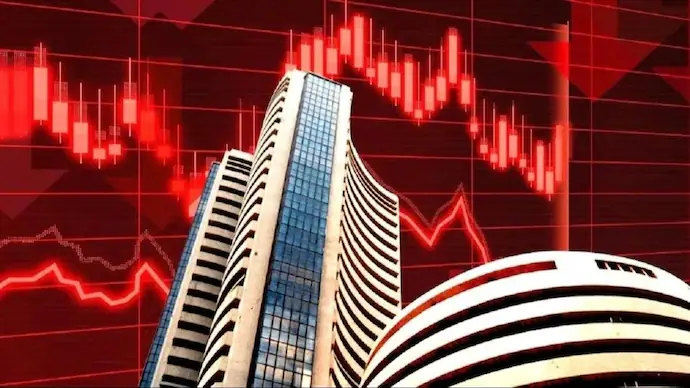
The domestic stock market continued to face challenges this week, with the Sensex dropping below 80,000 points in early trade on Friday. Investors are on edge as the market struggles to recover from a steady decline, driven by foreign investor selling and disappointing corporate earnings for the second quarter.
The S&P BSE Sensex was down 628.64 points to 79,436.52 at 10:59 am, while the NSE Nifty50 fell 254.30 points to trade at 24,145.10.
Most of the other broader market indices continued to get battered due to high volatility on Dalal Street.
The benchmark indices, including the Sensex and Nifty, have been sliding due to sustained selling pressure from Foreign Institutional Investors (FIIs). So far this month, FIIs have pulled out a massive Rs 98,085 crore from Indian equities, which has had a direct impact on market sentiment.
Dr. V K Vijayakumar, Chief Investment Strategist at Geojit Financial Services, explains that the usual “buy on dips” strategy, which worked effectively since the Covid lows of 2020, is no longer holding up. He highlights that weak earnings reports and downward revisions in FY25 estimates have shifted the market mood to a slightly bearish tone.
Despite the selling pressure, mutual fund inflows are providing some relief, helping Domestic Institutional Investors (DIIs) absorb the heavy FII selling. Vijayakumar remains optimistic that growth stocks, especially in sectors like large-cap financials, could prove more resilient.
On the technical side, Sameet Chavan, Head of Research at Angel One, points out that while the market hasn’t changed drastically, caution prevails. The Nifty index, which closed just below 24,400, formed a “Doji” pattern—often a signal of market indecision.
Chavan expects Nifty to remain within a tight range of 24,350 to 24,200 in the short term, with resistance around 24,500-24,600. A breakout above 25,000 could shift the outlook to a more bullish stance, but until then, any upward movement should be seen as a temporary recovery.
DULL Q2 EARNINGS
Q2 earnings season has been underwhelming, with many companies reporting weaker-than-expected results. Major players across sectors like IT, pharmaceuticals, and textiles are feeling the pressure, adding to the cautious market sentiment.
Prashanth Tapse, Senior VP at Mehta Equities Ltd., notes that key earnings reports from companies such as JSW Steel, Bandhan Bank, and Indigo will be critical to watch in the coming days.
Tapse also highlights that the upcoming US presidential election could have global market implications, further impacting Indian stocks, particularly in sectors like IT and pharmaceuticals that rely on international business.
SHOULD INVESTORS BE WORRIED?
While the market is going through a tough phase, analysts are not completely pessimistic. Some see opportunities in selective stocks that have rebounded from strong support levels. However, experts recommend being cautious and selective when making trades in the current environment.
For now, the focus remains on how the market reacts to further corporate earnings, international cues, and any shifts in FII selling. If the market can break above key resistance levels, there could be a potential for recovery, but until then, volatility is expected to continue.
For traders, keeping an eye on support and resistance levels and being cautious with stop-losses is key to navigating this uncertain market phase.